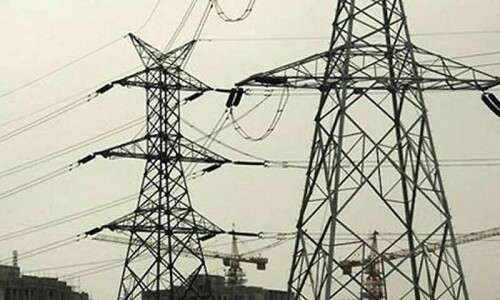ISLAMABAD: The Sustainable Development Policy Institute (SDPI) has recommended the privatisation of power distribution companies (Discos) in a phased manner to analyse the regulatory framework and identify potential obstacles before scaling up the divestment of other companies.
This plan should begin with the most financially viable Discos and gradually include others, ensuring that the process is manageable and that lessons from earlier phases are applied to subsequent ones, SDPI suggests in its new report, “Privatisation of Pakistan’s Power Utility Sector”.
The report says the Ministry of Energy, in collaboration with the National Electricity Power Regulatory Authority (Nepra), must establish a framework that governs the privatisation of Discos, including precise and cost-reflective tariff-setting mechanisms, service quality standards, and consumer protection measures, ensuring that private investors are held accountable for meeting these standards while maintaining transparency in tariff adjustments.
Privatisation reforms should establish stringent protocols for issuing detection bills and enforcing higher penalties for electricity theft. Increased penalties and an enabling legal framework, such as lodging FIRs in case of power theft, should be implemented to deter theft, ensuring that the benefits of privatisation include improved revenue recovery and reduced losses.
Nepra, in support of Civil Society Organisations (CSOs), needs to establish a consumer protection mechanism within 12 months. The report recommends that this mechanism should include a transparent grievance redressal system and enforce strict penalties for private entities that fail to meet service standards or engage in unfair practices.
If the privatisation of Discos is executed with a strategic and well-regulated approach, it can address Pakistan’s ‘3-E’ crisis –- energy, economy and environment, explains SDPI’s report. The privatisation of the power sector must be approached carefully and under a well-defined strategic framework to ensure its success and sustainability.
The report warns that without clear regulations, transparent processes, and strong oversight, privatisation could lead to unintended consequences such as increased tariffs, unequal access to services, or reduced accountability.
It is also essential to balance the profit motives of private entities with broader public interest and social equity. It says that a comprehensive strategy that includes stakeholder consultation, phased implementation, and robust regulatory mechanisms is crucial to mitigate these risks and achieve the desired outcomes of privatisation.
As of 2024, KE has been the only private sector company in Pakistan, and it faced challenges during the first five years (pre-2010), the entity has demonstrated positive trends while managing a challenging demography. While this already makes a positive case for privatisation of other Discos, it will further foster a competitive environment that drives continuous improvement and efficiency. Economically, this would lead to lower electricity prices, improved service quality, and increased consumer choice, contributing to higher consumer welfare and economic productivity, the SDPI report says.
The report says consumer perception and tariff management are critical for the success of privatisation. Transparent and fair tariff structures and effective communication strategies can build consumer trust and support. Macro-economically, transparent tariffs can prevent social unrest and ensure electricity remains affordable for all income groups. However, the reform measure to support this would go beyond just the private sector reforms to also bring consistency in policy decisions and planning processes.
In Pakistan, excessive and unequal taxation leads to inflated energy bills. Furthermore, inefficient planning has resulted in substantial debt commitments that must be serviced.
Published in Dawn, September 1st, 2024















































Dear visitor, the comments section is undergoing an overhaul and will return soon.